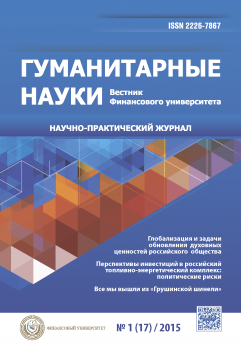An important part of reforming education in Russia is to implement innovations and to develop information and communication technologies within the framework of the inclusive education conception. These involve the creation of a new educational environment based on the idea of equal opportunities. Improving the system of general and professional education of disabled individuals should be considered as the prerequisite of empowering their social integration. The paper concerns the main priorities of the public policy in this sphere. The analysis of current regulatory and legal framework is carried out. Also the author identifies the main challenges in implementing the inclusive approach in the educational process. A sufficient legal basis for implementing the concept of inclusive education has already been formed. However in practice the organization of inclusive education faces a number of challenges. The most important among these include inadequate measures to restructure schools under the educational reform, the lack of financial support to create conditions for full inclusion, the illpreparedness of educational institutions to apply existing legislation in practice and to adapt current educational process to the needs of disabled students.
inclusive education, disabled individuals, new educational technologies, social integration.
1. Mikhal’chenko K.A. Inklyuzivnoe obrazovanie - problemy i puti resheniya [Inclusive Education: problems and solutions]. Teoriya i praktika obrazovaniya v sovremennom mire [Theory and practice of education in the modern world]. St.Peterburg, 2012. P.77-79.
2. D. Livanov: chislo korrektsionnykh shkol umen’shilos’ v RF za 3 goda na 3,9% [D.Livanov: The number of the schools for children with disabilities had been decreased in 3,9%]. Accessed by: http://dislife.ru/news/view/38308 (Available at: 21 July 2015).
3. Lyudmila Shvetsova obratila vnimanie D. Medvedeva na sud’bu inklyuzivnogo obrazovaniya v Rossii [L. Shvetsova asked D. Medvedev to pay attention on the future of inclusive education in Russia]. Accessed by: http://shvecova-blog.ru/index.php?option=com_content&;view=article&id=307:2014-04-23-06-59-55&catid=44:blogs&Itemid=81 (Available at: 21 July 2015).
4. Ivoylova I. Novye obrazovatel’nye standarty dlya invalidov oprobuyut v 2015 g. [New standards of education for people with disabilities will be used in 2015] Accessed by: http://www.rg.ru/2014/12/16/programma-site.html (Available at: 21 July 2015).
5. Godovnikova L.V., Asafaylo O.P. K voprosu podgotovki pedagogicheskikh kadrov dlya realizatsii inklyuzivnogo obrazovaniya [A problem of teachers’ training within the framework of inclusive education concept] Accessed by: http://edu-open.ru/Default.aspx?tabid=438 (Available at: 21 July 2015).
6. Borisova N., Perfi l’eva M. Strategii komandnogo sotrudnichestva v realizatsii inklyuzivnoy praktiki obrazovanii [Strategies of team cooperation in the process of implementation of inclusive education practice]. Moscow, 2012. 105 p.
7. Minobrnauki vystupaet za razvitie korrektsionnykh shkol [The Ministry of Education and Science of Russian Federation supports the development of schools for children with disabilities] Accessed by: http://www.strf.ru/material.aspx?CatalogId=221&;d_no=98333#.VZHybU_0GWU (Available at: 21 July 2015).





